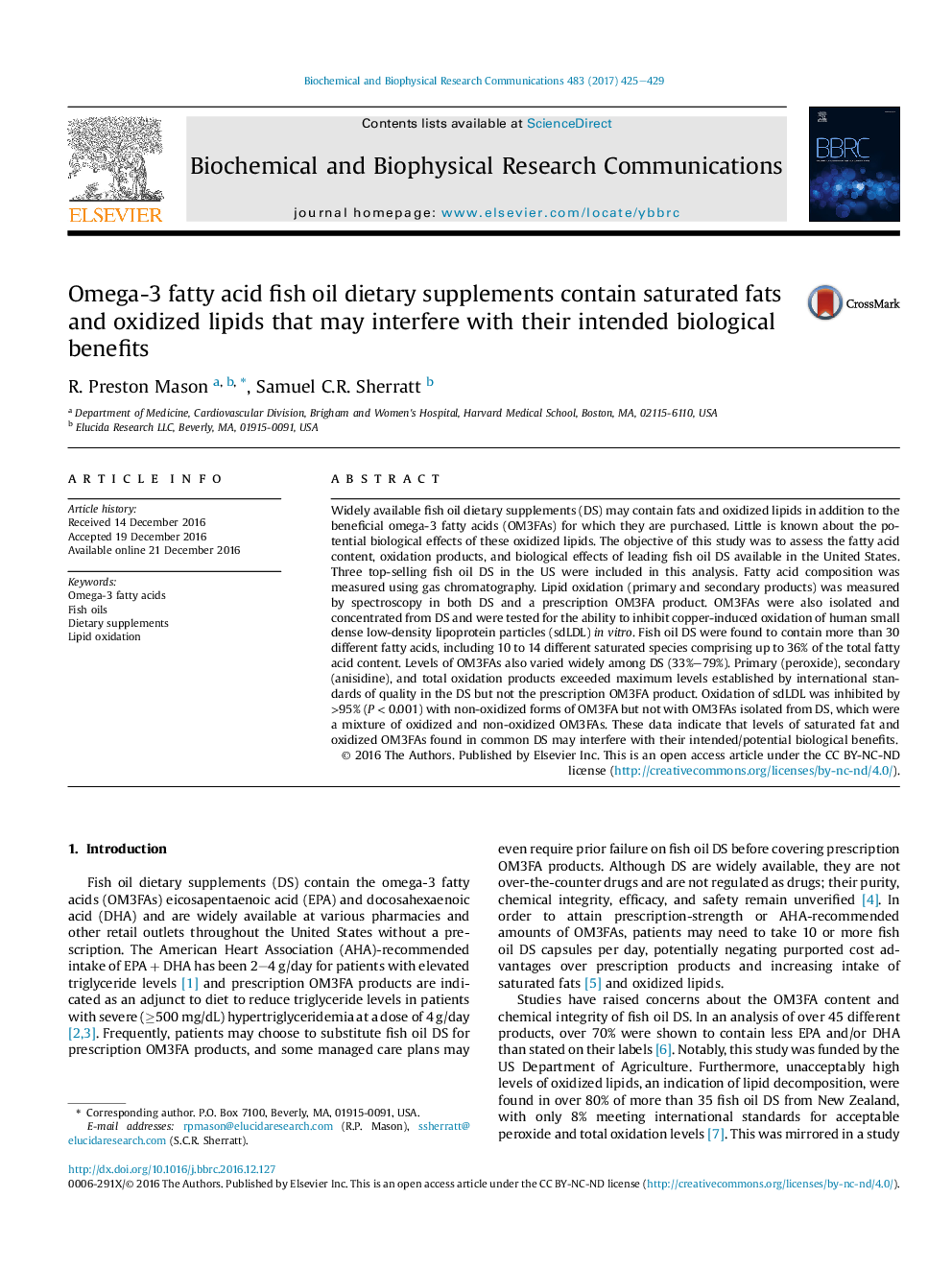| کد مقاله | کد نشریه | سال انتشار | مقاله انگلیسی | نسخه تمام متن |
|---|---|---|---|---|
| 5505612 | 1400273 | 2017 | 5 صفحه PDF | دانلود رایگان |
• 3 commonly available fish oil dietary supplements were investigated.
• They contained variable levels of omega-3 fatty acids and high levels of other fats.
• They also contained oxidation product levels that exceeded international standards.
• The oxidized lipids may interfere with their intended/potential biological benefits.
Widely available fish oil dietary supplements (DS) may contain fats and oxidized lipids in addition to the beneficial omega-3 fatty acids (OM3FAs) for which they are purchased. Little is known about the potential biological effects of these oxidized lipids. The objective of this study was to assess the fatty acid content, oxidation products, and biological effects of leading fish oil DS available in the United States. Three top-selling fish oil DS in the US were included in this analysis. Fatty acid composition was measured using gas chromatography. Lipid oxidation (primary and secondary products) was measured by spectroscopy in both DS and a prescription OM3FA product. OM3FAs were also isolated and concentrated from DS and were tested for the ability to inhibit copper-induced oxidation of human small dense low-density lipoprotein particles (sdLDL) in vitro. Fish oil DS were found to contain more than 30 different fatty acids, including 10 to 14 different saturated species comprising up to 36% of the total fatty acid content. Levels of OM3FAs also varied widely among DS (33%–79%). Primary (peroxide), secondary (anisidine), and total oxidation products exceeded maximum levels established by international standards of quality in the DS but not the prescription OM3FA product. Oxidation of sdLDL was inhibited by >95% (P < 0.001) with non-oxidized forms of OM3FA but not with OM3FAs isolated from DS, which were a mixture of oxidized and non-oxidized OM3FAs. These data indicate that levels of saturated fat and oxidized OM3FAs found in common DS may interfere with their intended/potential biological benefits.
Journal: Biochemical and Biophysical Research Communications - Volume 483, Issue 1, 29 January 2017, Pages 425–429
